
Culture
13:34, 14-Aug-2017
'Comfort women' documentary 'Twenty Two' opens in China
By Li Bin
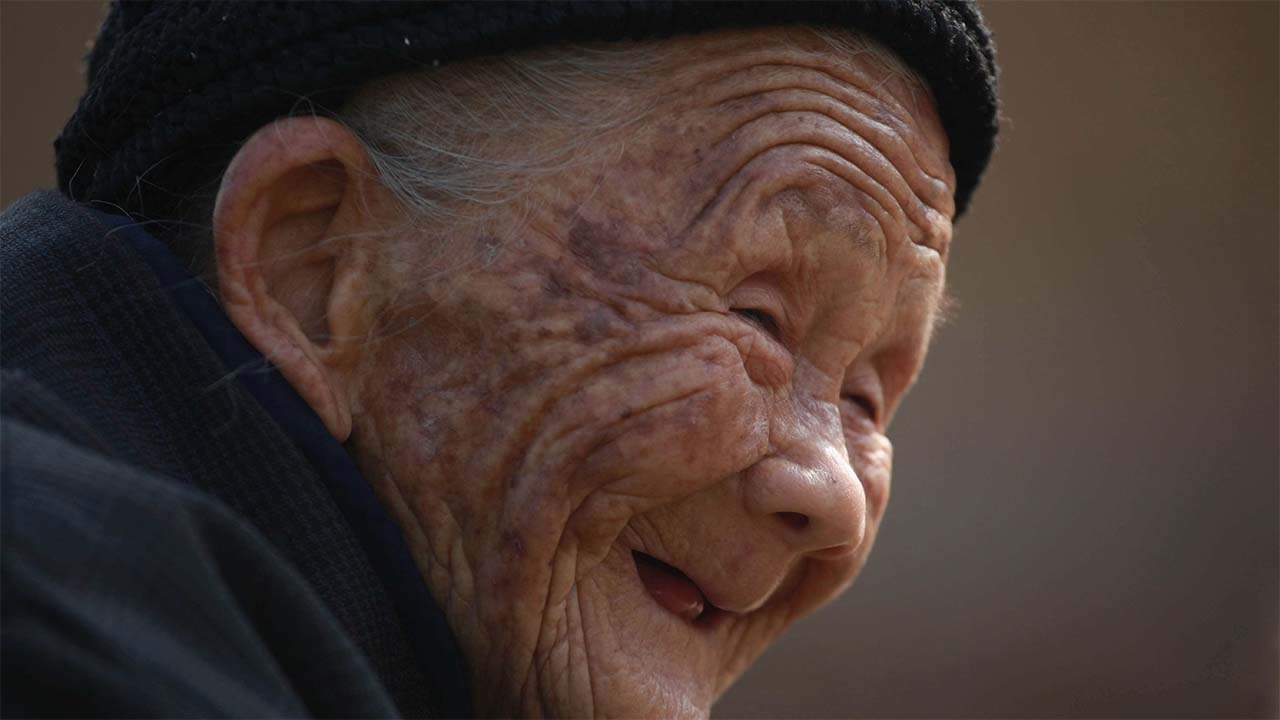
Chinese documentary film, "Twenty Two", screened in theaters on Monday, coinciding with the Fifth International Memorial Day for "Comfort Women".
The documentary was named after the number of "comfort women" alive at the time of its filming in 2014. It is estimated that at least 200,000 Chinese women were forced into sex slavery by the Japanese invaders during World War II.
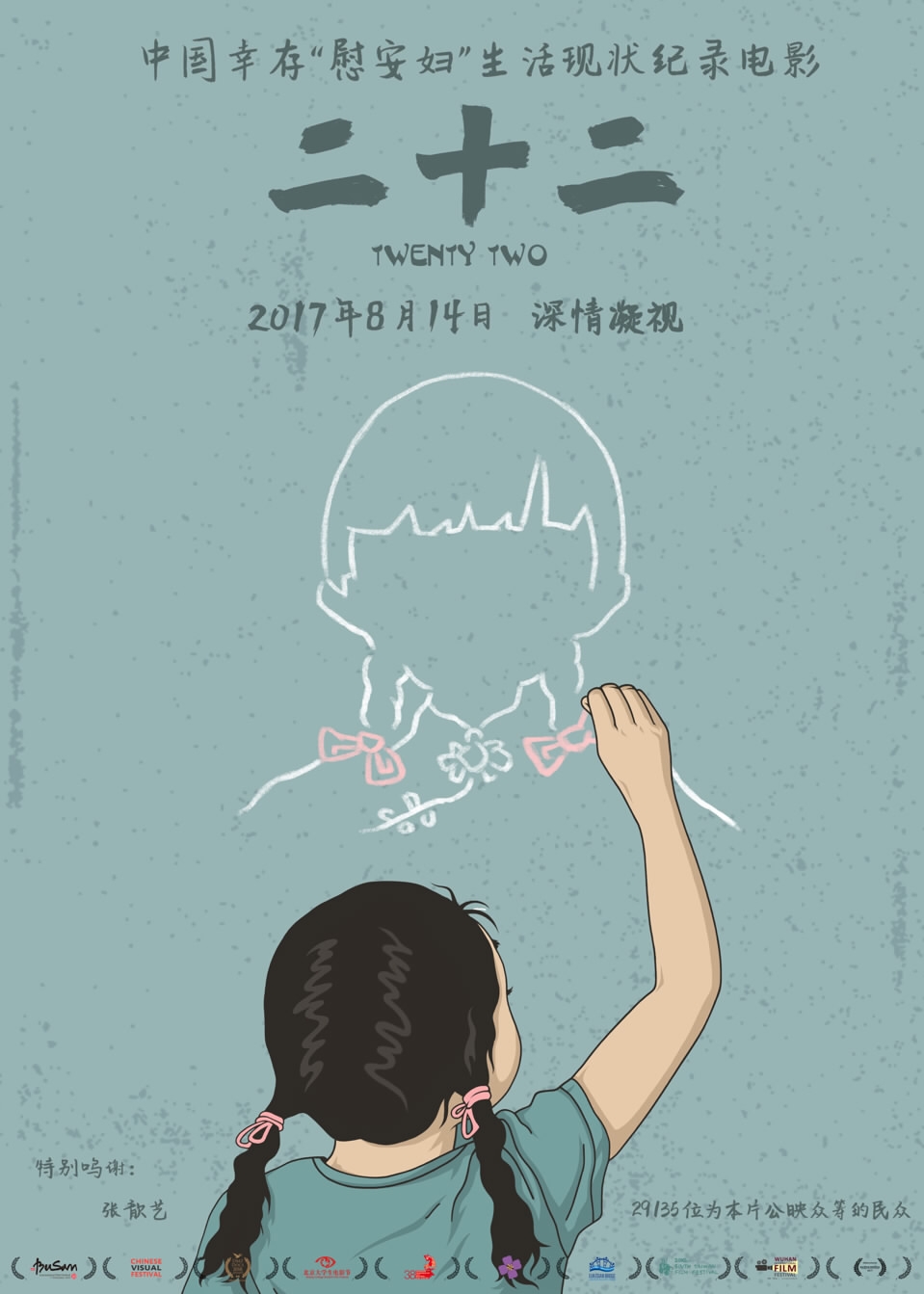
A poster for "Twenty Two" / Photo via Douban.com
A poster for "Twenty Two" / Photo via Douban.com
The film details the current situation and lives of these elderly women in different parts of China in a humanistic and engaging manner, straying away from that of a typical film narrative. "Twenty Two" follows the women as they go about their daily lives, offering their personal perspectives on life and the world as a whole.
The release comes on the heels of the death of Huang Youliang, one of the women who unsuccessfully sued the Japanese government in July of 2001 for their traumatic suffering. She died at the age of 90 in her home in the southern province of Hainan on August 13.
32, 22, 8
Directed by Guo Ke, "Twenty Two" is his second documentary on "comfort women". It was inspired by his directorial debut short "Thirty Two", released in 2012.
"Thirty Two" recounts the story of a 92-year-old "comfort woman" Wei Shaolan and her half-Japanese son. Wei also appeared in "Twenty Two".
The short film received favorable critical reviews both home and abroad, including the Best Cinematography Award at the 2013 Chinese Academy Awards of Documentary Film and nominations at the 2014 American Documentary Film Festival.
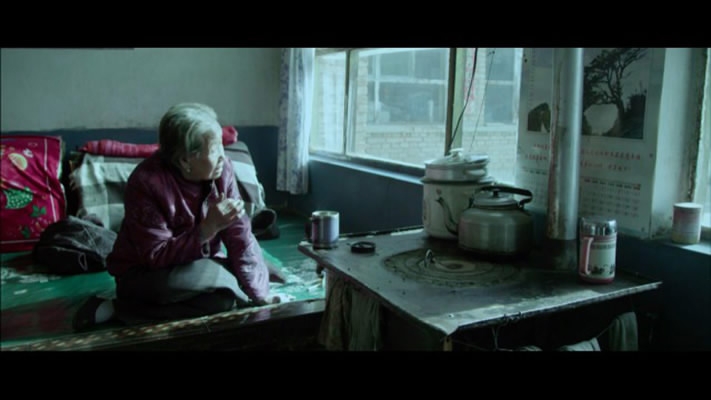
Photo via Douban.com
Photo via Douban.com
Back in 2012, there were 32 Chinese "comfort women" left in the country, by 2014 there were only 22.
The numbers are dwindling. Only nine of the 22 women featured in the film were alive before its public release.
"Go watch the film before the number becomes zero," said one Weibo user.
Restrained approach
"We would visit them every year. What we can do is limited. We can only try our best," said Guo in an interview.
The director was praised for his restrained and careful approach in shooting the film. He didn't chase the women with relentless questions but instead let them speak and answer organically.
"It's us who won't let go, not them," Guo said. "I want to show the people what these "comfort women" are in non-memorial days."
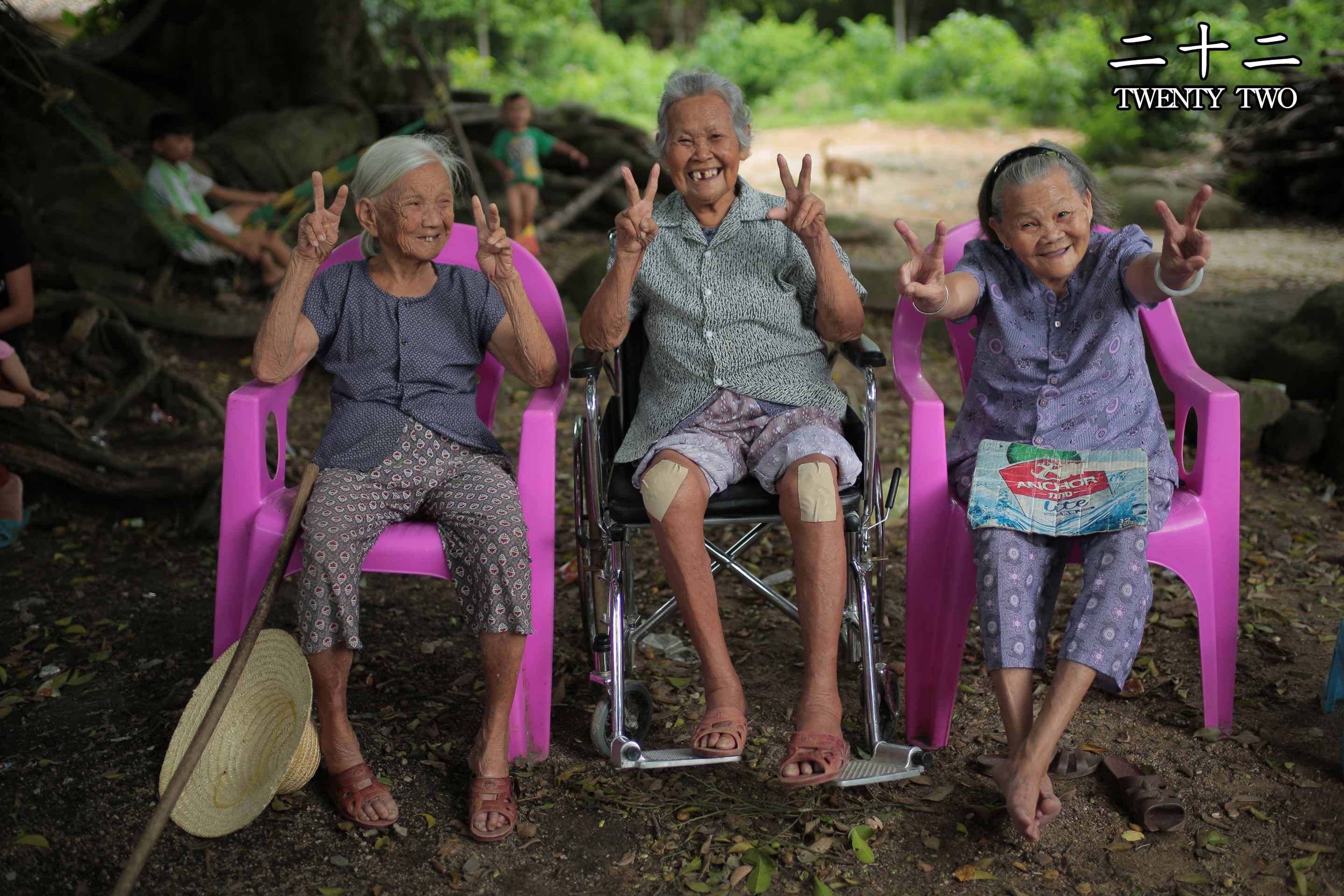
Photo via Douban.com
Photo via Douban.com
"During the past five years of filming, I felt no hardship. My relationship with them was like grandmother and grandson. They would make breakfast for us and ask our female staff to sleep on their beds. The whole process made us feel love," Guo said.
He also said people won't live to their 80s and 90s if they hold grudges and are miserable all the time.
"I only lament that life is short, not about being poor. So long as one has a long life, forget poverty. The world really is great. I don't want to die yet. The world is sparkling," just like Wei Shaolan said in the film.
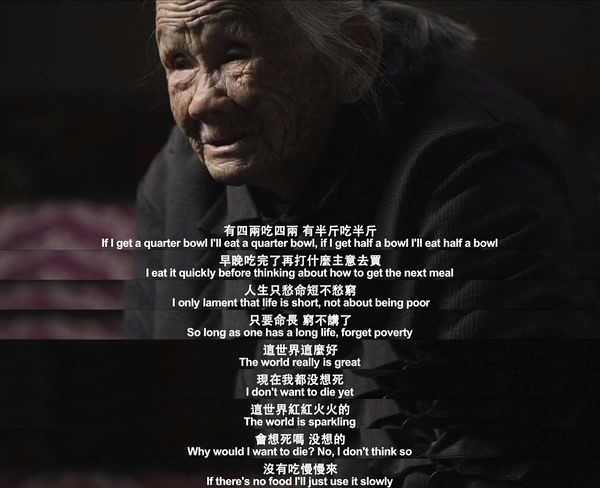
Photo via Douban.com
Photo via Douban.com
Outcry for wider screening
"Twenty Two" is being released against some tough competition at the box office. It is going up against the action blockbuster "Wolf Warrior 2", crime thriller "Guilty of Mind" and fantasy film "Legend of the Naga Pearls." All are competing at the same period, which left "Twenty Two" with only one percent of the screening arrangements.
Renowned director Feng Xiaogang has since taken to Weibo to promote the film, calling cinemas to increase the ratio despite potential commercial losses.
Feng was doing a favor for actress Zhang Xinyi, who donated one million yuan to the production.
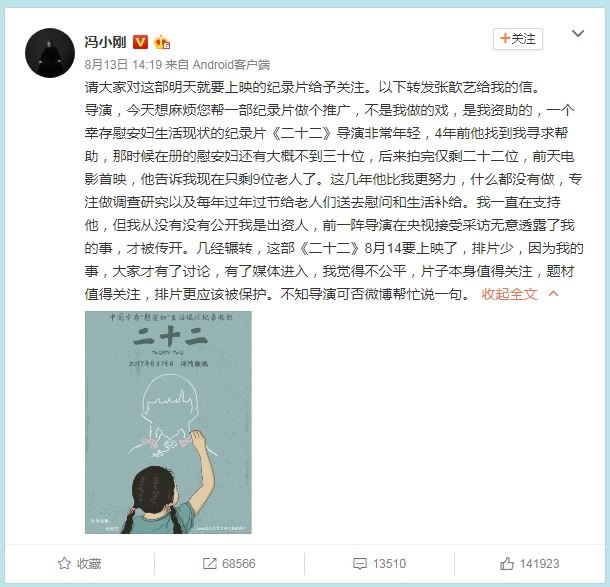
A screenshot of Feng Xiaogang's Weibo page
A screenshot of Feng Xiaogang's Weibo page
Zhang's involvement in the film was accidentally revealed by the director during an interview with China Central Television (CCTV), which later caused much attention on social media.
"Because of my sponsorship, there were some discussions among the public and later the media. I think that's unfair. The film alone is worth attention. The subject of the film is worth attention. And the ratio of screening should be protected," Zhang said in the letter.
In less than 20 hours, the Weibo post by Feng Xiaogang has received more than 141,000 likes and 68,000 retweets including those from A-list stars who vowed to buy tickets to support the film.
More than one million yuan was raised from the public to go towards publication fees for the film.
The director typed the names of all 32,099 people who made donations and had them shown during the film's credits.

SITEMAP
Copyright © 2018 CGTN. Beijing ICP prepared NO.16065310-3
Copyright © 2018 CGTN. Beijing ICP prepared NO.16065310-3